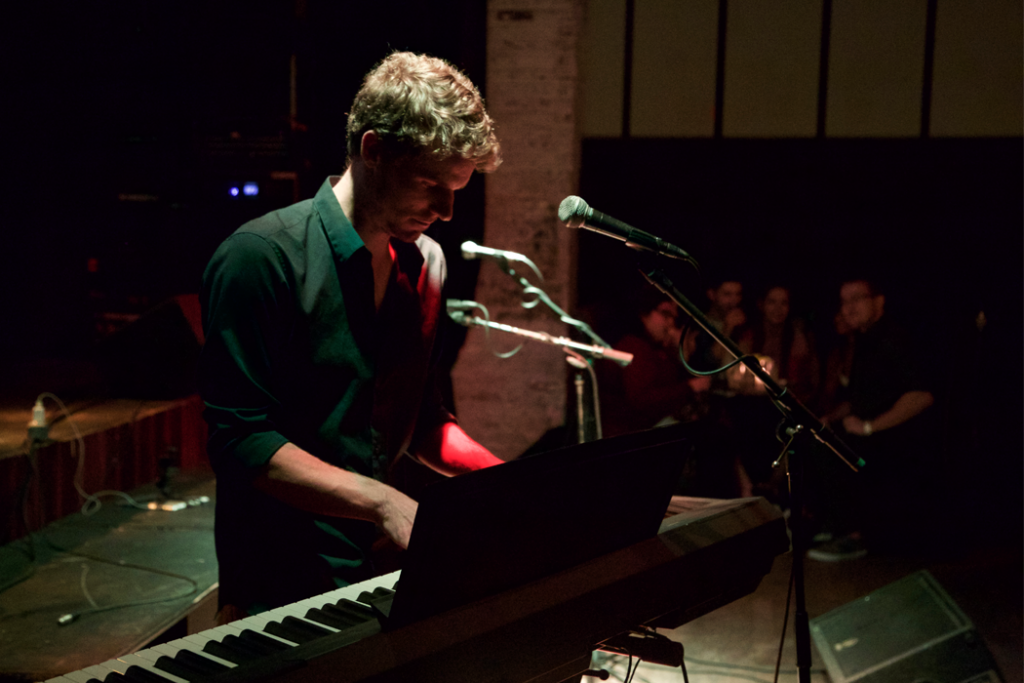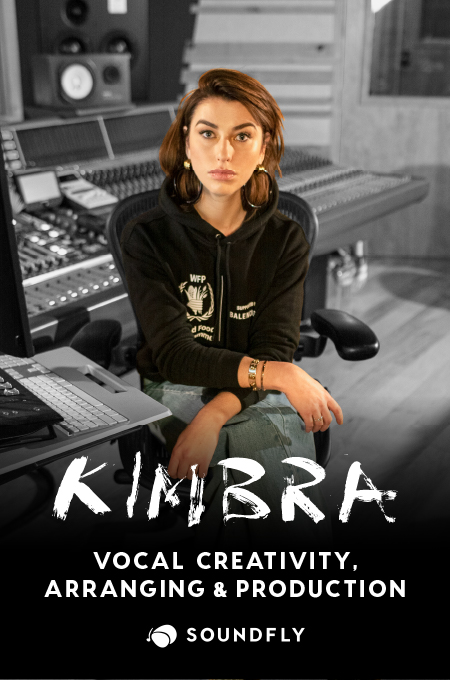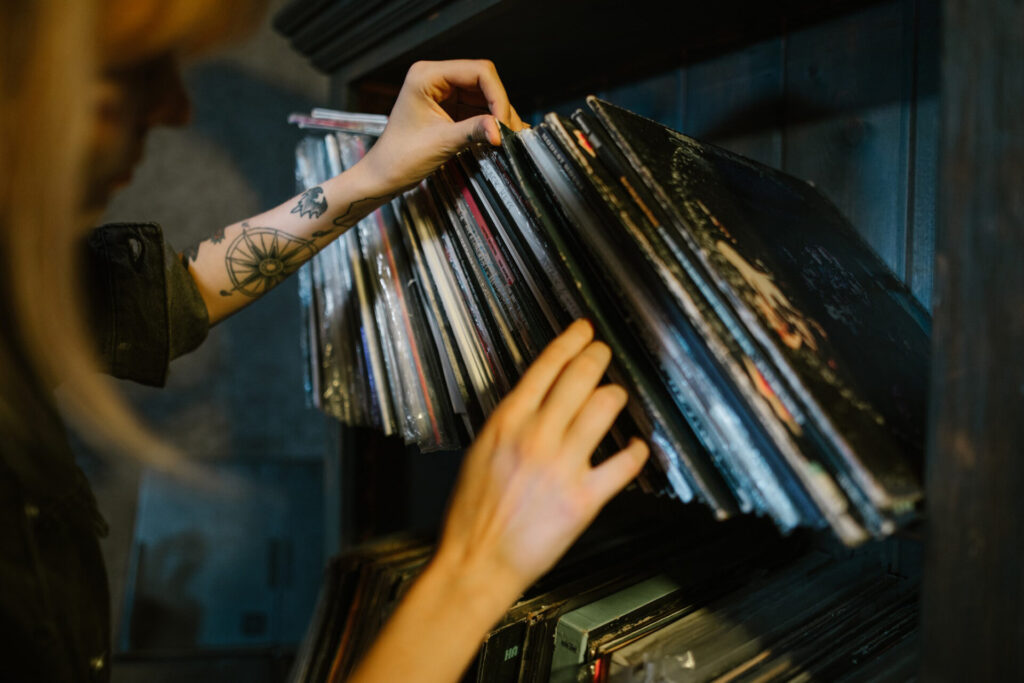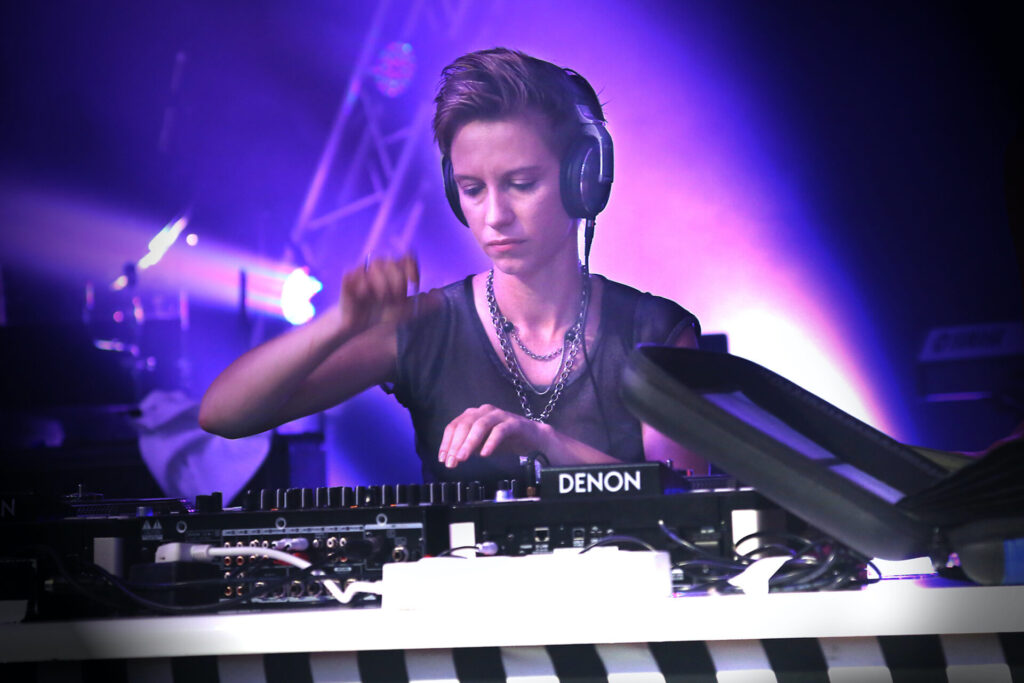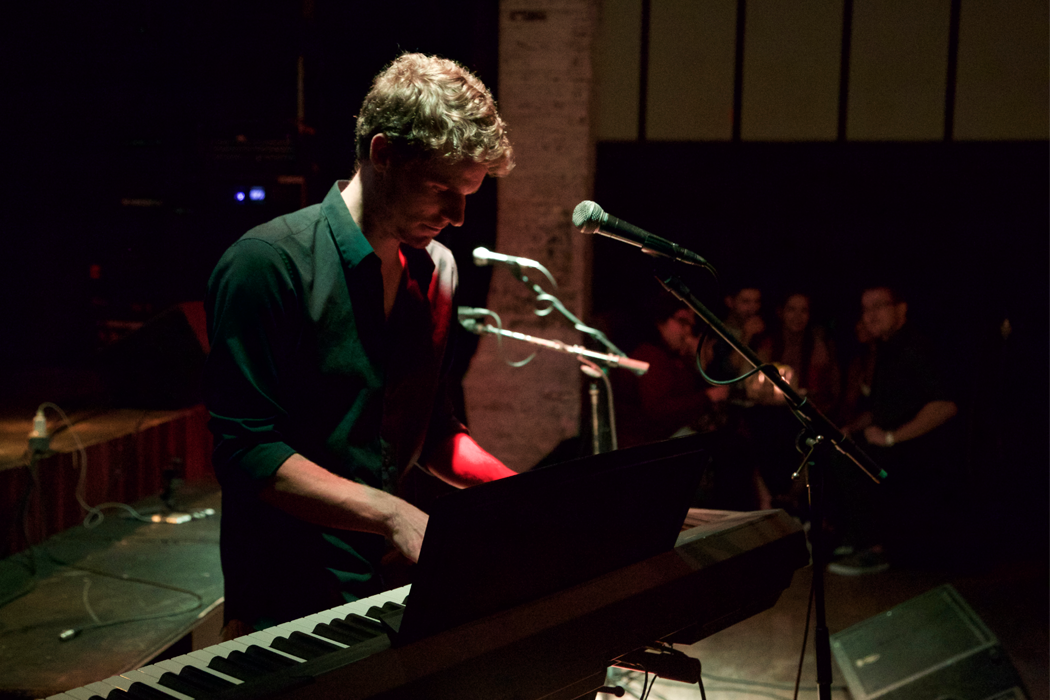
By Liam Singer
Live rock music and noisy bars go together like beer and… more beer! The sounds of a drum kit, electric guitar, and amplified vocals are all designed to cut through the noise of clinking glasses and drunken conversations. These are not “dinner party” instruments.
Audiences in these spaces don’t always like hearing quieter music. I often perform solo, and being alone onstage and playing at a low volume can be a difficult experience in the loud world in which we musicians live.
Some players go into a situation knowing they’ll be talked over. A jazz ensemble playing in a restaurant, for example, should have little expectation of being the center of attention. If you’re presenting a meticulously composed or emotionally vulnerable work in a venue, however, the results of a disengaged and noisy audience can be difficult to handle.
I can remember the first time I played a full set of my quiet piano music in front of a noisy crowd of strangers. I could hear snippets of their conversations more clearly than I could my own voice, including the things they were saying about me. I felt so distracted and hurt by their dismissiveness that I lost my place in the music several times and left the stage feeling horribly defeated.
It wasn’t because I thought my music deserved to be treated as the universe’s gift to the world (though, what musician secretly doesn’t?), but because the songs meant so much personally. I walked out alone and shared something incredibly important to me only to be met with disinterest and what felt like hostility.
Now, years later, I’ve gained a lot of perspective by performing in many similar situations and watching fellow musicians do the same. Here are a few observations and suggestions about how to handle performing when it feels like nobody cares.
+ Read more on Flypaper: “Looking Beyond Local: Taking Your Band to the Next Level”
Your onstage perception is wrong.
Recently, I attended a set by an acquaintance who doesn’t usually play live. The performance took place in a gallery setting, but because it was an art opening, the crowd approached it as a social event and continued talking throughout his set.
He left the stage in much the same agitated state as I did after that first fateful gig. “Nobody was paying attention,” he said. “Everybody was talking over the music — I couldn’t even hear myself.” The funny part was, I didn’t think it had been all that bad. Sure, there was ambient chatter, but the people around me and I were able to fully engage with his performance.
So, what was the disconnect? Why did his performance seem disastrous to him and fine to me?
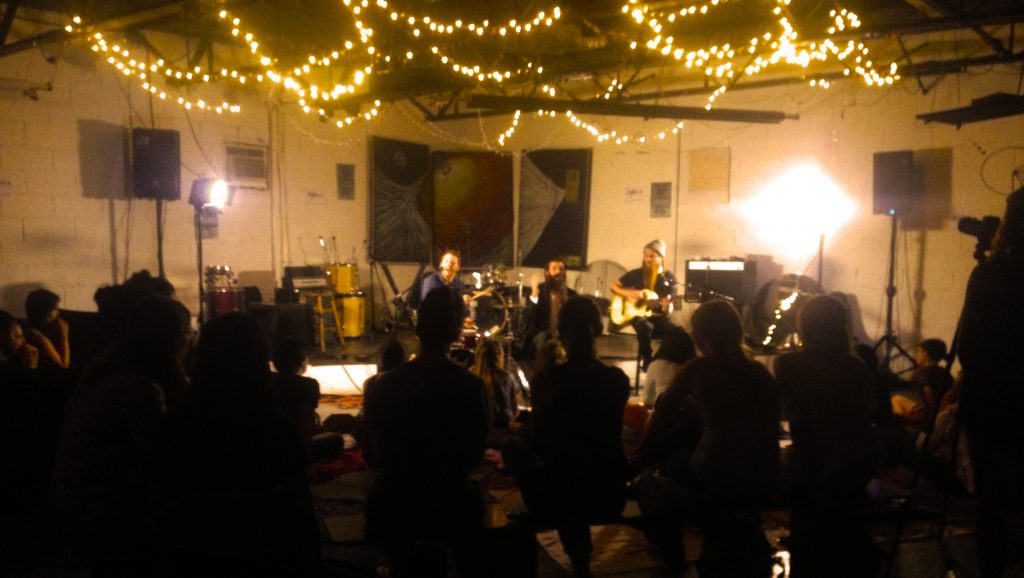
Ego is one obvious answer. There’s no denying that it takes time to learn how to deal with a crowd ignoring something you’ve spent months trying to perfect. But there were other factors at play, too.
In this case, the first was physics. He was running a table of electronics through a PA with the speakers placed in front of him with no monitors. He could hear himself, sure, but not with the same, full volume he was projecting to the audience. Meanwhile, all that audience chatter was projected back to him.
Compounding this was a funny psychological phenomenon: perceived loudness grows when we pay attention to it. I was paying attention to the music, so my perceived volume of the crowd shrank. On the other hand, his concern about audience chatter made him pay more attention to it.
Another factor is also partly perceptual and partly situational: We can’t see as much from the stage as we think we can. As performers, our eyes tend to catch a handful of people in a room and apply their behavior to the entire audience.
In this situation, he saw groups of people in the room talking and ignoring his performance and took it to mean that no one was watching. Yet, from where I stood in the crowd, I could attest to the fact that a major group of us were definitely engaged in the music.
After repeatedly playing sets that feel disastrous, but actually aren’t, you learn that you can’t entirely trust your onstage perception. I’ve lost count of the number of times I’ve felt I was playing to a wall of conversation, only to have people come up afterward and cite specific songs and moments they enjoyed. Even if you feel like you can’t hear yourself play, there’s always someone, perhaps in the corner, who can.
Get your audience to pipe down and listen up.
There’s no question that you can only really achieve some musical effects in a quiet room. Songs or compositions that play off of silence and nuance simply can’t pull their weight in a loud environment. So, are there ways to get a noisy audience to quiet down and listen? Yes, though there are more ways to fail at it.
The most common mistake I see is musicians attempting to “battle” audience conversation by continually increasing onstage volume. If an audience is already talking and semi-disengaged, this never works as a way to make people pay attention.
Instead, it tends to achieve the opposite effect. People become less self-conscious about their conversation being heard by others and shout over the music. You get louder, so they get louder. This creates a loop of ever-increasing noise that serves nobody’s interest.
The ideal volume in a noisy room is one that allows engaged audience members to hear the music but doesn’t encourage those talking to raise their voices. Turning up as loud as possible may feel good from the stage, but it often ruins the very performance you’re hoping to preserve.
After a certain point, volume has little to do with musical impact unless the work was designed to sonically overwhelm. Instead, punishing the crowd with noise only erases any subtlety or delicate compositional aspects present in the music.

Though it seems anti-intuitive, try quieting crowded rooms by playing very softly or without amplification. Performing at an unexpectedly low volume tends to shut people up both out of self-consciousness and from the shock of the novelty.
This achieves the goal of performing the music as it was meant to be presented. It also bonds the crowd by making them feel as though they’ve witnessed something intimate and unusual.
It’s a gamble that might easily backfire, of course. It takes a fairly confident performer to understand that his or her music can have impact without volume, but if you can get the audience invested initially, it can really work.
The first couple minutes onstage tend to dictate a lot about how an audience will behave throughout your set. Many people talk over a performance not because they’re hostile or uninterested, but because they were so engaged in a previous conversation that they never realized somebody started playing!
All of us, even those who know how agonizing it is to be onstage, have done this as audience members at some point. And all of us, too, have stopped what we’re doing and turned to focus on the performer because he or she did something to engage us.
What simple thing can you do to interrupt people’s conversations without explicitly telling them to be quiet? That’s a skill that can’t be taught, but being aware of the importance of first impressions and presence as a performer can help you get there.
It shouldn’t need to be said, but directly telling an audience (one that didn’t necessarily come out to see you) that they need to “shut up” is never a good idea, no matter how frustrated you are. I’ve seen performers do this, and it always ends badly.
That said, audience members shushing other audience members sometimes does work, so by all means, invite your friends out and give them permission to shush if they don’t mind a little confrontation!
+ Read more on Flypaper: “How to Amp Up the Drama as a Solo Performer”
If you can’t beat ’em, join ’em.
If you’re frustrated and over trying to force audiences to stop talking during your acoustic sets, play music that’s more appropriate for bars or clubs. This is, in essence, why many singer-songwriters recruit backing bands; not because the music necessarily dictates it, but because it’s the only way to compete with the volume of those rooms.
After many years of performing solo on piano or accompanied by acoustic strings, I decided to write a set of songs with a drummer and Ableton backing tracks specifically tailored for performing live. Though I lost certain aspects of my style, I made a lot of musical discoveries, and overall, it felt really good to be able to play songs that were more successful in those situations.
While spaces and audiences for quiet and difficult music continuously need to be created, it can be illuminating as a musician to approach the problem from the other direction and write for a new type of performance.
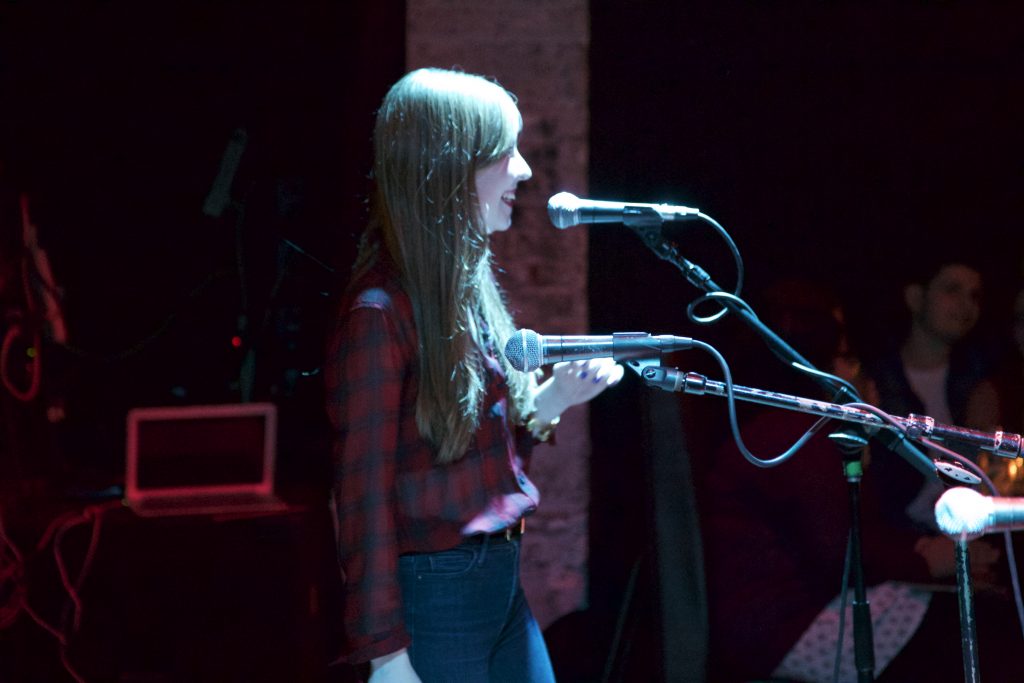
It’s important to remember that live performance isn’t an all-or-nothing game. Just because the full impact of your work isn’t felt in a given space doesn’t make the performance a total failure.
It takes a little time and experience to grow the thick skin required to ignore a seemingly dismissive audience and focus on the few who appreciate what you’re doing. In many ways, the connections you form with those listeners are all the more valuable, because those are the ones who chose to listen through the noise.
—
Liam Singer lives in Catskill, NY. He has released four solo albums: The Empty Heart of the Chameleon (Tell-All, 2004), Our Secret Lies Beneath the Creek (Tell-All, 2006), Dislocatia (Hidden Shoal, 2010), and Arc Iris (Hidden Shoal, 2013). In addition, he has contributed to albums and performances by the Balustrade Ensemble, Slow Six, Alexander Turnquist, and Sontag Shogun.
lives in Catskill, NY. He has released four solo albums: The Empty Heart of the Chameleon (Tell-All, 2004), Our Secret Lies Beneath the Creek (Tell-All, 2006), Dislocatia (Hidden Shoal, 2010), and Arc Iris (Hidden Shoal, 2013). In addition, he has contributed to albums and performances by the Balustrade Ensemble, Slow Six, Alexander Turnquist, and Sontag Shogun.
